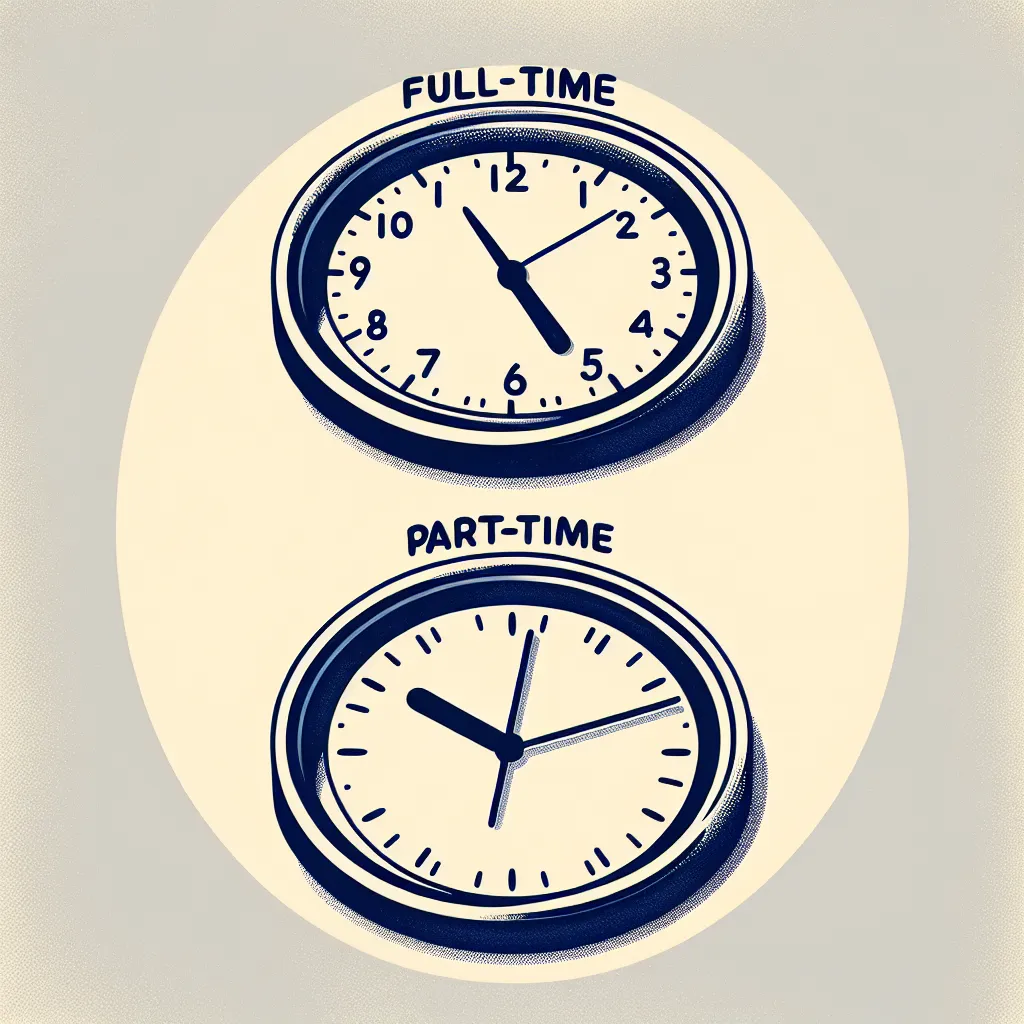Ask AI on The Internet
Question: whats the difference between a full-time and part-time job?
The main differences between a full-time and part-time job typically revolve around the number of hours worked, benefits, job stability, and sometimes the scope of responsibilities. Here's a breakdown: ### Hours Worked: - **Full-Time Job:** Generally requires employees to work about 35-40 hours per week. In some countries, the threshold for a full-time job may vary. - **Part-Time Job:** Usually involves working fewer hours than a full-time job, often less than 35 hours a week. The exact number can vary based on the employer and country but is typically less consistent than full-time work. ### Benefits: - **Full-Time Job:** Often comes with a more comprehensive benefits package, which may include health insurance, retirement plans, paid time off (PTO), and other perks such as bonuses and paid holidays. - **Part-Time Job:** Benefits are often limited or nonexistent. Some employers may offer prorated benefits to part-time employees, but this is less common. ### Job Stability and Career Advancement: - **Full-Time Job:** Generally offers more job security and opportunities for career advancement. Employers may invest more in training and development for full-time staff. - **Part-Time Job:** Often seen as less stable and may offer fewer opportunities for career advancement. However, part-time jobs can still provide valuable experience and may lead to full-time opportunities. ### Scope of Responsibilities: - **Full-Time Job:** May involve a broader scope of responsibilities and a higher level of commitment. Full-time positions often come with more substantial projects and leadership roles. - **Part-Time Job:** Typically involves a more limited scope of responsibilities. However, this can vary significantly based on the industry and specific employer. ### Income: - **Full-Time Job:** Generally provides a more stable and potentially higher income due to the greater number of hours worked and possible access to bonuses and raises. - **Part-Time Job:** Usually results in lower overall income compared to a full-time position due to fewer hours worked. However, some part-time jobs may offer higher hourly rates. ### Flexibility: - **Full-Time Job:** May offer less flexibility in terms of work hours but can provide more stability and routine. - **Part-Time Job:** Often provides greater flexibility, which can be beneficial for students, parents, or individuals with other commitments. ### Legal and Employer-Defined Differences: - Specific definitions and regulations about what constitutes full-time vs. part-time work can vary based on country, state, and employer-specific policies. It's essential to review the terms set forth by the employer and local labor laws. Choosing between a full-time and part-time job depends on your personal circumstances, career goals, and financial needs.
Think your answer is better than the AI's? Post it below.
Other Most Relevant Posts:
Question Tags
If you want your question answered by an AI, click here.







Post your own comment: